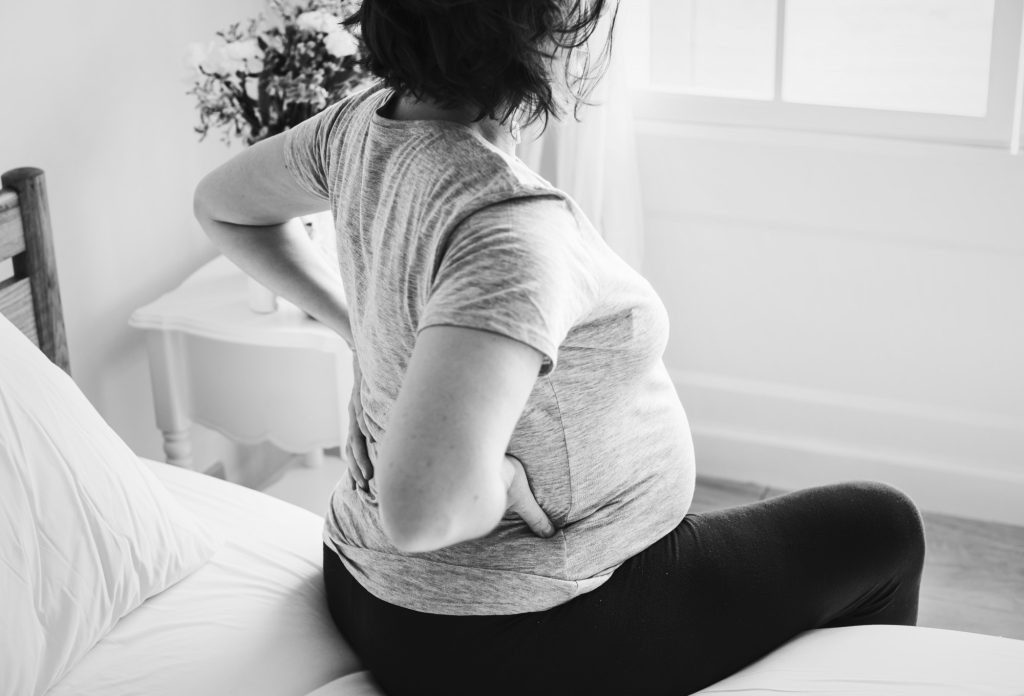Discover the potential complications associated with pregnancy-related back pain and learn how to manage and alleviate discomfort for a healthier pregnancy journey..
Does Pregnancy-Related Back Pain Indicate Complications?
Pregnancy can be an exciting journey, but it’s not without its discomforts. One common issue that many expectant mothers face is back pain. While some may dismiss it as a normal part of pregnancy, others may worry that it indicates something more serious. In this article, we’ll delve into the world of pregnancy-related back pain and explore whether it could be a sign of complications.

Understanding Pregnancy-Related Back Pain
First things first, let’s unravel the mystery behind pregnancy-related back pain. It’s important to note that experiencing back pain during pregnancy is not uncommon, affecting about 50-70% of pregnant women. This discomfort typically occurs in the lower back or pelvic area. But why does it happen?
The Anatomy of Back Pain During Pregnancy:ong>
During pregnancy, as your baby bump grows, your body undergoes remarkable changes. One of these changes involves the ligaments and joints in your pelvis loosening to prepare for childbirth. This can lead to instability in the lower back and possibly cause discomfort.
As the ligaments and joints in your pelvis loosen, the weight of your growing uterus puts additional strain on your lower back. The expanding uterus shifts your center of gravity forward, causing your spine to curve more than usual. This change in posture can contribute to back pain during pregnancy.
Common Causes of Back Pain in Pregnancy:
Now that we understand the anatomy, let’s explore the culprits behind pregnancy-related back pain. Some common causes include the extra weight gained during pregnancy, poor posture, and changes in your center of gravity. Hormonal changes that loosen ligaments can also contribute to the discomfort.
During pregnancy, women typically gain between 25-35 pounds. This extra weight places additional stress on the spine and can lead to back pain. As the baby grows, the weight distribution in your body changes, shifting your center of gravity forward. This shift can strain the muscles and ligaments in your lower back, causing discomfort.
Poor posture can exacerbate back pain during pregnancy. As your belly grows, it’s natural to adjust your posture to accommodate the weight. However, slouching or hunching forward can strain the muscles in your back and contribute to pain. Maintaining good posture, such as sitting up straight and using supportive cushions, can help alleviate some of the discomfort.
Hormonal changes during pregnancy also play a role in back pain. The hormone relaxin, which helps prepare the body for childbirth, causes the ligaments in the pelvis to become more flexible. While this flexibility is necessary for childbirth, it can also lead to instability in the lower back and contribute to pain and discomfort.
The Link Between Back Pain and Pregnancy Complications
So, could that nagging back pain be a red flag for potential complications? Let’s take a closer look.
During pregnancy, many women experience back pain as a common symptom. This discomfort can range from mild to severe, and it is often attributed to the changes happening in the body as the baby grows. However, in some cases, back pain can be a sign of underlying issues that may pose risks to both the mother and the baby.
Correlation Between Severe Back Pain and Pregnancy Risks:
While most cases of pregnancy-related back pain are considered normal, severe or persistent pain may indicate a need for further evaluation. Studies have suggested a potential link between intense back pain and an increased risk of complications such as preterm birth or low birth weight. This correlation has raised concerns among healthcare professionals and researchers, who are working to understand the underlying mechanisms.
One possible explanation for this correlation is that severe back pain during pregnancy could be a symptom of an underlying condition that affects the overall health of the mother and the developing fetus. For example, conditions like gestational diabetes or preeclampsia have been associated with back pain. These conditions can disrupt the normal functioning of the body and potentially lead to complications during pregnancy.
It is important to note that while the correlation between severe back pain and pregnancy risks has been observed in some studies, further research is needed to fully understand the relationship. Researchers are investigating various factors that may contribute to this link, such as hormonal changes, mechanical stress on the spine, and genetic predispositions.
How Back Pain Could Signal Underlying Issues:
Although it’s not common, there are instances where back pain during pregnancy may be indicative of underlying issues. These could include conditions such as urinary tract infections or kidney stones. In these cases, the back pain is not directly caused by the pregnancy itself but rather by the presence of an unrelated condition that coincides with pregnancy.
If you experience severe back pain accompanied by other symptoms like fever or difficulty urinating, it’s important to consult your healthcare provider. These additional symptoms may indicate a more serious underlying issue that requires medical attention. Prompt diagnosis and treatment can help prevent complications and ensure the well-being of both the mother and the baby.
In conclusion, while back pain during pregnancy is a common occurrence, it is essential to pay attention to the severity and persistence of the pain. Severe back pain may be a red flag for potential complications, and it is crucial to seek medical advice to rule out any underlying issues. Healthcare professionals are continuously researching the link between back pain and pregnancy risks to provide better care and support for expectant mothers.
Differentiating Normal and Abnormal Back Pain
Now that we’ve explored the potential risks, let’s discuss how you can differentiate between normal pregnancy-related back pain and something that might require medical attention.
Identifying Normal Back Pain Symptoms:
Normal back pain associated with pregnancy tends to come and go, and its intensity can vary. It is typically relieved by rest, light stretching, or changes in position. The discomfort may be felt in the lower back, hips, or pelvis, and it is a common complaint among expectant mothers.
During pregnancy, your body undergoes significant changes to accommodate the growing baby. The weight gain and shifting of your center of gravity can put strain on your back muscles and ligaments, leading to discomfort. Hormonal changes also play a role in loosening the joints and ligaments, which can contribute to back pain.
Engaging in regular exercise, such as prenatal yoga or swimming, can help strengthen your back muscles and alleviate some of the discomfort. Additionally, maintaining good posture and using supportive pillows while sleeping can provide relief.
If the pain is mild to moderate and doesn’t interfere with your daily activities, chances are it falls within the realm of normal.
Warning Signs of Abnormal Back Pain:
On the other hand, if you experience severe or constant back pain that doesn’t improve with rest, it’s wise to seek medical advice. This could be a sign of a more serious condition, such as a herniated disc or sciatica.
Other warning signs that warrant attention include sharp pain, pain accompanied by vaginal bleeding, or any new or unusual symptoms. These could indicate a potential complication that requires immediate medical attention.
It’s important to remember that every pregnancy is unique, and what may be considered normal for one person may not be for another. If you have any concerns about your back pain, it’s always better to err on the side of caution and be proactive about your health.
Your healthcare provider will be able to evaluate your symptoms, perform any necessary tests, and provide appropriate treatment or recommendations. They can help determine whether your back pain is within the normal range or if further investigation is needed.
Medical Interventions for Pregnancy-Related Back Pain
If you find yourself struggling with back pain during pregnancy, take comfort in knowing there are medical interventions available to help alleviate your discomfort.
During pregnancy, the body undergoes numerous changes to accommodate the growing baby. These changes can put strain on the back, leading to pain and discomfort. However, it’s important to remember that you don’t have to suffer in silence. Seeking medical attention can provide you with the relief you need.

When to Seek Medical Attention:
If your back pain becomes unbearable or is accompanied by any concerning symptoms, don’t hesitate to contact your healthcare provider. They can assess your situation and provide guidance tailored to your needs.
It’s crucial to pay attention to any additional symptoms you may experience alongside back pain. These symptoms can include numbness or tingling in the legs, difficulty walking, or bladder and bowel dysfunction. If you notice any of these symptoms, it’s important to seek medical attention promptly, as they may indicate a more serious underlying condition.
Treatment Options for Pregnancy-Related Back Pain:
There are various treatment options that your healthcare provider may recommend to manage pregnancy-related back pain. These can include physical therapy, prenatal massage, and the use of support devices like maternity belts. Always consult with your healthcare provider before trying any new treatment.
Physical therapy can be an effective way to alleviate back pain during pregnancy. A trained therapist can guide you through exercises and stretches that target the muscles supporting your back, helping to strengthen them and reduce pain. They can also provide you with valuable advice on posture and body mechanics to minimize strain on your back.
Prenatal massage is another option that can provide relief for pregnancy-related back pain. A skilled massage therapist can apply gentle pressure and kneading techniques to the affected areas, promoting relaxation and reducing muscle tension. However, it’s important to ensure that the massage therapist is trained in prenatal massage techniques to ensure the safety of both you and your baby.
In addition to physical therapy and prenatal massage, your healthcare provider may recommend the use of support devices like maternity belts. These belts are designed to provide additional support to your lower back and abdomen, relieving some of the strain on your back muscles. They can be particularly helpful during activities that require prolonged standing or walking.
Remember, every pregnancy is unique, and what works for one person may not work for another. It’s essential to work closely with your healthcare provider to determine the best treatment options for your specific needs. They can assess your condition, take into account any underlying medical conditions or complications, and develop a personalized treatment plan to help you manage your pregnancy-related back pain.
Preventive Measures and Pain Management
Now that we’ve covered medical interventions, let’s explore some preventive measures and pain management techniques you can incorporate into your daily routine.
Lifestyle Changes to Alleviate Back Pain:
A few simple lifestyle changes can go a long way in reducing pregnancy-related back pain. Maintaining good posture, avoiding heavy lifting, and wearing supportive shoes can help alleviate discomfort. Additionally, practicing gentle exercises such as prenatal yoga or swimming can help strengthen your core and ease strain on your back.
Safe Exercises for Pregnant Women with Back Pain:
If you’re experiencing back pain, rest assured that there are exercises you can safely engage in to alleviate your discomfort. Consult with your healthcare provider or a certified prenatal exercise specialist for personalized recommendations. Exercises such as pelvic tilts, cat-cow stretches, and gentle walking can provide relief without putting excessive strain on your body.
In conclusion, pregnancy-related back pain is a common phenomenon that affects many expectant mothers. While it’s usually considered normal, severe or persistent pain may warrant further evaluation. It’s essential to differentiate between normal discomfort and potential complications, seeking medical attention when necessary. By staying proactive, exploring various treatment options, and incorporating preventive measures, you can manage and alleviate your back pain during this beautiful phase of your life.



